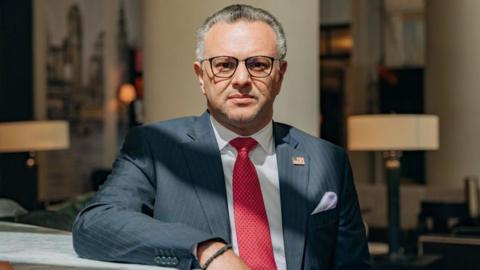“He has been a longtime proponent of Republican and Conservative values,” Trump said on Truth Social, adding that Mr Boulos was an “asset” to his campaign.
On the campaign trail, Mr Boulos appealed to Arab American and Muslim voters by promising them that Trump would restore peace in the Middle East.
His efforts exploited a big vulnerability for the Harris campaign, who struggled to win support from Arab and Muslim Americans due to US support of Israel during the ongoing Israel-Gaza war.
“Those massacres would not have happened if there was a strong president at the White House,” Mr Boulos told Trump supporters in Arizona earlier this year, referring to the mounting civilian deaths in Gaza. “The entire war wouldn’t have happened.”
It is unclear how Mr Boulos intends to leverage his advisory role. Born in Lebanon, he is known to have forged ties with several political factions in his birth country.
He told the Associated Press in June that he is a “friend” of Sleiman Frangieh, a Christian Lebanese politician who is allied with the Shia Muslim political party and militant group Hezbollah.
Mr Boulos has already served as something of an informal liaison between Trump and Middle Eastern leaders, the New York Times reported.
He is also reported to have met Mahmoud Abbas, the leader of the Palestinian Authority, on the sidelines of the United Nations General Assembly in September.
At that meeting, Mr Boulos reportedly conveyed Trump’s desire to end the Israel-Gaza war and other conflicts around the world.
Mr Boulos moved to Texas as a teenager, according to a profile of him in the New Arab, where he attended the University of Houston and obtained a law degree.
He has since worked at his family’s business - a Nigeria-based billion-dollar company that specialises in the distribution of motor vehicles and equipment across West Africa.
Unlike some of Trump's other appointments, Mr Boulos’ advisory role does not require confirmation by the US Senate.
